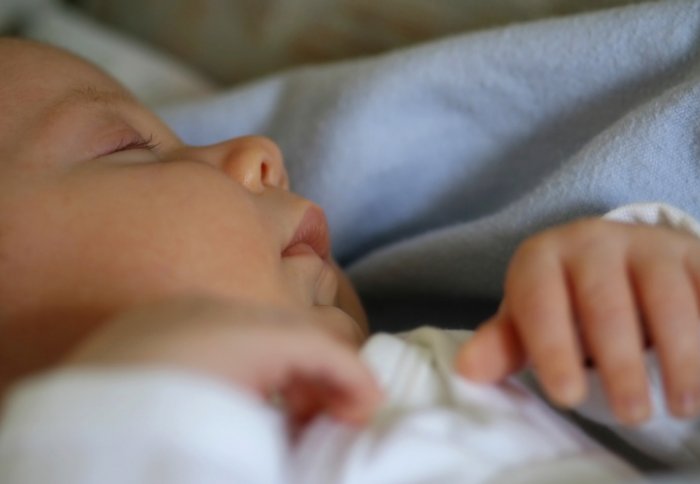Vaccinating mothers-to-be could protect babies from dangerous infections

Researchers from Imperial College London are developing a new maternal immunisation programme to protect pregnant women and their babies.
Small babies are particularly vulnerable to infections, because their immune system is immature and has not yet produced the necessary antibodies to fight off diseases. They might not be protected until they receive their first sets of recommended vaccines from the age of two months onwards.
Vaccinating women during pregnancy can protect their babies from infections when they are very young. When a pregnant woman is vaccinated, she produces protective antibodies that can be transferred to her child in the womb through the placenta. The antibodies remain in the baby for up to six months after birth.
Influenza and pertussis vaccines are already recommended for pregnant women in the UK.
However, concerns have been raised that for some infections, high levels of certain antibodies present at birth could reduce babies’ own antibody responses when they receive their first jabs. While this is not a problem for diseases such as tetanus, some studies have found that vaccinating mothers late in pregnancy could compromise the effectiveness of the measles vaccine given to babies.
“We really need to get a better grasp of which vaccines can safely be given to mothers in pregnancy,” says Professor Beate Kampmann, from the Department of Paediatrics at Imperial.
Professor Kampmann and her colleagues carried out a study to determine whether maternal immunisation could be recommended for different infectious diseases that are particularly dangerous for very young babies. They looked at pertussis, pneumococcus and haemophilus B, three infections that remain dangerous in the UK. Fourteen babies died from pertussis in the UK last year.
The researchers followed 61 mothers and babies over a period of several months, taking blood samples from both the mother and the baby at birth. They then asked mothers and babies to come back after the infants had received the three doses of their recommended baby vaccines at two, three and four months of age.
The team measured the level of antibodies each baby had received naturally from his or her mother, and whether there were differences in the infants’ response to their own vaccines later on. These mothers had not received vaccines in pregnancy, but had antibodies due to natural infection earlier in their lives or following their own vaccinations in childhood.
The work, funded by the National Institute for Health Research (NIHR) Imperial Biomedical Research Centre, showed that all the vaccinated babies had the right level of protection from their vaccines, regardless of the level of antibodies provided by the mother. But it also showed that some women had very low antibody to pass on to their babies.
The findings are published in the journal Vaccine.
“These are very promising results,” Professor Kampmann adds. “We are excited to continue further trials with women who have received vaccines now recommended during pregnancy and assess the effect of maternal vaccination on the responses in their babies.”
The team is conducting further research at Imperial College Healthcare NHS Trust to investigate maternal immunisations in women receiving antenatal care at Imperial (the MatImms® project) in collaboration with the obstetric team led by Professor Lesley Regan, and is also planning a clinical trial in Africa.
Professor Kampmann leads vaccine research at the MRC Unit in The Gambia, where diseases such as pneumococcal meningitis or streptococcal infections still claim the lives of many newborns.
“We are particularly interested in how the maternal immunisation programme could be implemented in Africa. Vaccinating mothers against certain infections could be a promising way to protect their young babies in a setting where the death rates in newborns remain unacceptably high.”
Reference: C. Jones et al. ‘The relationship between concentration of specific antibody at birth and subsequent response to primary immunization.’ Vaccine. 2014 Feb 12;32(8):996-1002. doi: 10.1016/j.vaccine.2013.11.104.
Article text (excluding photos or graphics) © Imperial College London.
Photos and graphics subject to third party copyright used with permission or © Imperial College London.
Reporter
Marion Ferrat
Centre for Environmental Policy
